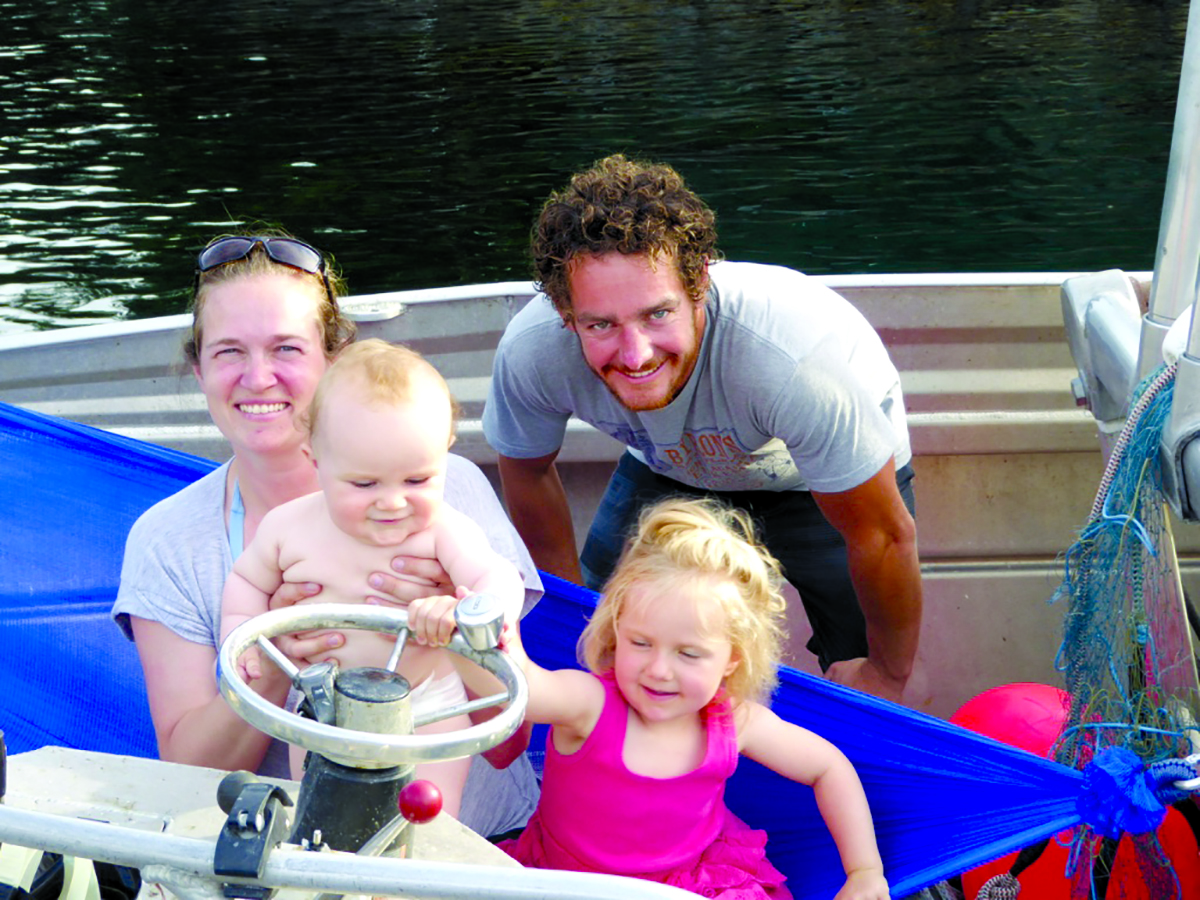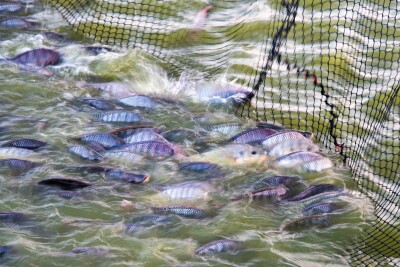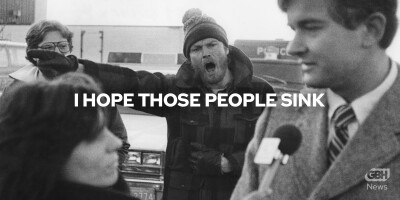[Editor's Note: A prior version of this story named Mike and Malani as the O'Tooles. O'Toole is Malani's maiden name. The family's name is Towle.]
Malani O’Toole Towle grew up in Cordova, Alaska, in a fishing family and returned home after completing her degree at Stanford University. Mike Towle grew up in California and came to Cordova for a fishing job aboard a seiner. He had only planned to stay one summer, but on his flight to Alaska, he sat next to Malani, who was returning home from college. For the last seven years, Mike has been running their independent gillnet operation on the F/V May Run with Malani as support. The couple lives year-round in Cordova with their two young children in a house they built themselves.
The Towles are featured in an Alaska Fishing Virtual Reality mobile app that captures a glimpse in the life of an Alaska fishing family. The app can be found in the Google Play or Apple iTunes app stores; search for “Alaska Fishing VR.” We caught up with them to find out what it’s like to run a small, family-based fishing business in Cordova.
What’s life like in Cordova?
Mike: Cordova is a small fishing community located on the eastern edge of the Prince William Sound and the western edge of the Copper River Delta. There is no road that connects Cordova to the rest of the state, so access is restricted to either boat or plane. This makes for a tight-knit community, as we Cordovans must often rely on each other whether it’s needing a tow or building a house. People here have to help each other out.
How did you get involved in the fishing industry?
Mike: I was in college studying marine biology and was looking for a summer job. I was hired by a family to fish here in Cordova, and I just fell in love with the fishery, with the town, and my wife! After five years’ fishing for the family that brought me up here, I decided to buy into gillnetting.
Gillnetting is a hands-on way of fishing that suits me. It is often exciting and challenging, whether it be due to competition among us fishermen or bad weather. There is always something more to learn out on the water and every day presents new challenges and adventures. I never know what I may be faced with on any given day.
Malani: I grew up in Cordova in a fishing family. I spent many years going out on the water with my father catching wild salmon and learning the ropes. Fishing for me is a way of life, not just a job.
What does the fishing industry mean to you?
Malani: Sustainable fishing is a really big deal in Cordova. The fishermen here take pride in providing the world with a beautiful food product in a sustainable, clean and responsible way. Sustainable fishing has been happening in Cordova for generations. We don’t just think about fishing for those here and now, but maintaining a way of life that will benefit our children and our grandchildren, and even their grandchildren. Wild salmon is a natural resource that we carefully manage and protect for longevity.
The fishermen who go out on the boats are all members of small family businesses — not large corporations — who dedicate their lives to this industry. Every single member of the fishing family plays a part. When you buy wild Alaskan salmon, you are supporting a hard-working family business.
Mike: Alaska is the world’s prime location for wild salmon. The fish here is very high quality, sustainable and very healthy. Alaskan waters are still pristine. There is so much untouched coastline here that makes for a great area for the salmon to spawn. The fishermen here are proud of our fishery and strive to protect it. We are all invested in this lifestyle and have personal stakes in the health of our fishery. This keeps us all accountable to maintaining sustainable practices for the sake of our families, as well as our community.
What’s life really like on the water?
Mike: Gillnetting isn’t always easy. In my eight years, I have been through breakdowns on the water, bad weather and injuries. Often these are the stories we share around bonfires to learn from each other what to do (or in my case what not to do) when things go wrong.
Fishing is very competitive, which makes it intense. You can’t afford to get too comfortable out there or you may just miss a fishing opportunity. During the four-month season, my every thought is focused on fish; watching each wiggle of the net, watching each boat that is coming, watching each boat that is going, each ripple, each bird, each change in wind, each temperature change, each tide change… It is all consuming.
It takes a bit of time after each season to decompress, so to speak, and learn how to relax again. It’s hard to just turn it off, but the contrast between the on and off seasons is part of what I love about this lifestyle. Winter is a great time to unwind and spend time with family. Cordova is a great community to raise kids, and we stay busy with our two young children.
Malani: It can be hard sometimes. Mike can be away for up to eight weeks at a time, and I worry when the weather turns, but I feel better knowing that he has a group of guys out there — his radio group — that he stays in contact with. They look out for one another and make sure that everybody stays safe and is doing well.







